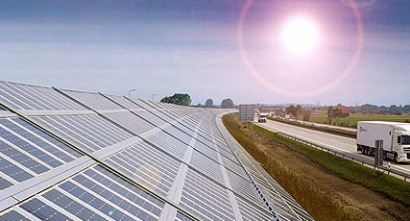
In his preface to ‘State of Renewable Energies in Europe’, William Gillett, Head of Unit for Renewable Energy, Executive Agency for Competitiveness and Innovation of the European Commission, 2010 was “momentous for the evolution of the renewable energy market in Europe,” with renewable energy output rising by 11.3% between 2009 and 2010.
Gillett added that despite a cold winter and a high level of rainfall, which helped renewable output, this figure “highlights the positive impacts of support policies and additional investments by market players”.
According to the official data published in November 2011 by Eurostat, the share of renewables in the European Union (EU) was 11.6% in 2010. Furthermore, Virginie Schwarz, Executive Programme Director of ADEME, reveals in her preface that “we [Europe] have travelled a long way even if the 2010 targets have not entirely been met”. She says that 85% of the 1997 White Paper target of 12% renewable energy share of primary energy consumption has been achieved at roughly 10.2%. Secondly, the previous Renewable Electricity Directive (2001/77/EC) target of 21% renewable energies in the EU’s gross electricity consumption has almost been achieved, at 19.8%, namely 5% short of the target.
Thirdly, the former Biofuel Directive (2003/30/EC) that sets an incorporation rate of 5.75% in the energy content of all transport fuels in 2010 was 82%, achieved at 4.7%. Lastly, the 12.4% share of renewable energies in gross final consumption achieved in 2010 "puts us on the right track to achieve the 20% target for 2010, judg8ing from the 8% increase observed over the 12 months between 2009 and 2010".
In 2010 the overall EU-27 renewable energy share accounts for 12.4% of overall gross final energy consumption, as against 11.5% in 2009, which amounts to a 0.9-point year-on-year increase compared to 2009.
The 2009-2010 growth of the renewable energy share of overall gross final energy consumption is related to a bigger gross consumption of final energy from renewable sources: 145 Mtoe (against 131.6 Mtoe in 2009) for a gross final energy consumption of 1170.7 Mtoe (against 1146.3 Mtoe in 2009). From 2009 to 2010, gross consumption of final energy from renewable sources increased by 10.2% (+ 13.4 Mtoe), as against to a 2.1% increase (+ 24.4 Mtoe) of the overall gross final energy consumption.
Contributions to the renewable energy growth can be found in the increase in final consumption of solid biomass for heating due to a long winter, but also the increase of renewable electricity technologies (hydropower, electricity from biomass, wind power and solar power (mainly photovoltaics)).
EurObserv’ER has calculated that the European Union already is ahead of the energy trajectory mapped out in the NREAPs (145 Mtoe compared to the 136.8 Mtoe projected for 2010 by all Member States together). EU members should produce an extra hundred Mtoe of final energy from renewable sources to achieve the 2020 target of 20% of renewable energies in the EU-27 final energy gross consumption (2009/28/CE directive). It equates to an extra annual average of 10 Mtoe of final energy from renewable sources.
Schwarz says "all this is good, heartening news for Europe", although she warns that it is based on "a nascent and thus fragile momentum that calls for support and nurturing”.
“It will require a raft of converging support measures to help reduce financial energy consumption and at the same time increase renewable energy output to ensure this growth is sustained over time,” she stresses.
Jobs and wealth creation up
According to the latest EurObserv’ER report, renewable energy based employment reached 1.11 million people in 2010, while renewable energy based economic activity topped €127 billion.
The renewable energy sectors, taking all 27 European Union Member States together, have more than 1,114,000 people employed. This is a 25% increase on the 2009 figure (of 912,220). The top employer is solid biomass with more than 273,000 jobs, followed by photovoltaic and wind power with respectively 268,110 and 253,145 jobs estimated for 2010. Business in the photovoltaic sector surged in 2010, which led to a 50% increase in job numbers and in countries as such Germany, France and Italy job numbers expanded by 70% and more.
The economic activity of the 27 European Union Member States for 2010 stemming from renewable energies is up 15% on the 2009 figure of €120 billion. Excellent performance by the photovoltaic sector, with sales of 45564 million euro in Europe’s markets, has taken it past wind power as the top earner. Photovoltaic is followed by the wind power and solid biomass sectors.
Regional highlights
Seven case studies have also been analysed in ‘The State of Renewable Energies in Europe’, highlighting which countries have performed especially well in which technology segments. Thus, Spain, and Andalusia in particular, has been chosen for the impressive growth in its concentrated solar power sector. Meanwhile, Germany (Lower Saxony) and France (Champagne-Ardenne) were selected to discuss how they have developed their biogas and biofuels industries, respectively.
Smart grid development in Denmark (Bornholm), solar thermal advances in Upper Austria, and the increase in wind energy capacity in Poland (Pomerania) were also covered.
For additional information:

